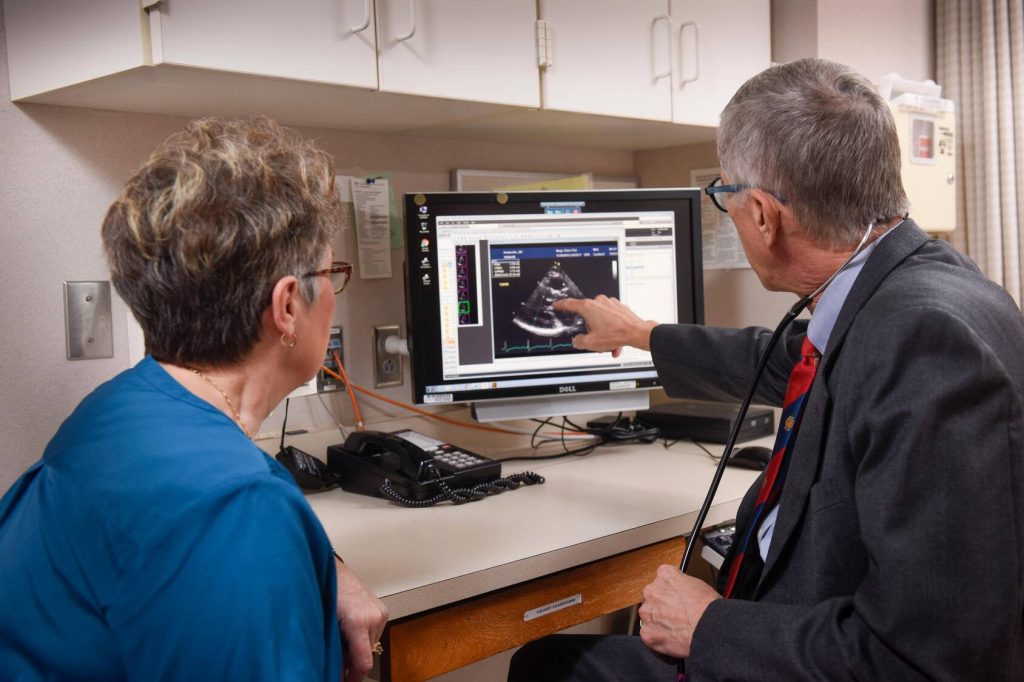-
Featured News
Use of anticoagulant drug after aortic valve replacement lowers mortality risk, Mayo Clinic study finds

ROCHESTER, Minn. — Patients who received the anticoagulant drug warfarin after bioprosthetic aortic valve replacement had lower incidence of mortality and a decreased risk of blood clots, according to a retrospective study published in Mayo Clinic Proceedings.
The use of bioprosthetic aortic valve replacement has increased significantly during the past decade. Among its advantages is that most patients can avoid warfarin for anticoagulation treatment. Even so, research has been conflicting on whether patients would benefit from more aggressive early postoperative anticoagulation treatment.
Mayo Clinic researchers analyzed nationwide data on more than 10,000 patients who underwent bioprosthetic aortic valve replacement. Warfarin use was associated with a 32% reduction in mortality risk. Patients treated with warfarin early postoperatively also had an increased risk of major bleeding events.
"The findings support early warfarin use in appropriately selected patients, such as patients with low bleeding risk," says Hartzell Schaff, M.D., a Mayo Clinic cardiovascular surgeon who contributed to the study. "There’s often reluctance to prescribe anticoagulant treatment early after surgery due to concerns about bleeding and uncertainty about benefits. Our research finds that the small increased hazard of bleeding (4% versus 2.3%) may be an acceptable risk given the benefits in terms of mortality risk as well as reduced risk of thromboembolism."
The Mayo Clinic study analyzed deidentified patient data from 2007 to 2019 using OptumLabs Data Warehouse, which contains claims data of commercially insured and Medicare Advantage enrollees of all ages and races throughout the U.S. The study was conducted in collaboration with the Mayo Clinic Robert D. and Patricia E. Kern Center for the Science of Health Care Delivery.
###
About Mayo Clinic Proceedings
Mayo Clinic Proceedings is a monthly, peer-reviewed journal that publishes original articles and reviews on clinical and laboratory medicine, clinical research, basic science research and clinical epidemiology. The journal, sponsored by Mayo Foundation for Medical Education and Research as part of its commitment to physician education, has been published for 97 years and has a circulation of 127,000.
About Mayo Clinic College of Medicine and Science
Mayo Clinic College of Medicine and Science educates and trains more than 4,000 students, residents, and fellows a year in biomedical education. As part of the nonprofit Mayo Clinic academic medical center, the college is supported by Mayo Clinic's world-class clinical expertise, a commitment to academic excellence, and unparalleled research capabilities. The college has five schools: Mayo Clinic Alix School of Medicine, Mayo Clinic Graduate School of Biomedical Sciences, Mayo Clinic School of Graduate Medical Education, Mayo Clinic School of Health Sciences, and Mayo Clinic School of Continuous Professional Development.
About Mayo Clinic
Mayo Clinic is a nonprofit organization committed to innovation in clinical practice, education and research, and providing compassion, expertise and answers to everyone who needs healing. Visit the Mayo Clinic News Network for additional Mayo Clinic news.
Media contact:
- Jay Furst, Mayo Clinic Research and Education Communications, newsbureau@mayo.edu







